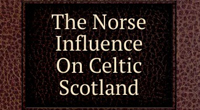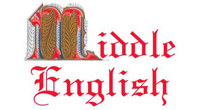Old English. History
Old English (or Anglo-Saxon) is an early form of the English language that was spoken and written in parts of what are now England and south-eastern Scotland between the mid-5th century and the mid-12th century. Old English was a group of dialects, brought to Britain by Germanic settlers (the Angles, Saxon and Jutes) from various parts of northwest Germany and the Northern Netherlands in the 5th century AD. The Saxons settled in areas of Essex (East Saxons), Sussex (South Saxons), Middlesex (Middle Saxons), and Wessex (West Saxons). The Jutes settled mainly in Kent. The Angles settled in East Anglia. The four main dialects of Old English were Mercian, Northumbrian, Kentish, and West Saxon after the names of the main Anglo-Saxon kingdoms: Northumbria, Mercia, Wessex, Kent. Eventually one of these dialects, Late West Saxon, came to dominate. There are still Anglo-Saxon place names in English: Barrow-in-Furness (barrow = wood), Banbury, Shaftesbury (bury = fortified place), Birmingham (ham = village), Staplehurst, Chislehurst (hurst = wooden hill), Henley (leigh / lee / ley = forest clearing), Cromer (mer /mar /mere = lake), Stanstead (stead /sted = place), Tonbridge, Alton, Luton (ton / tun = enclosed village / farmstead / manor), Greenwich (fields), Woolwich (sheep), Butterwick (dairy), Chiswick (cheese) (wick / wich = produce of a farm). Place names begining with Wednes, Wodnes and Woodnes come from the name of Woden, a war god: Wednesfield, Wodnesfeld; both mean ‘Woden’s field’. Tuesley in Surrey was named after the god Tiw. Thursley in Sussex is named after the god Thunor and means ‘Thunor’s grove’.
Old English was not static. It assimilated some aspects of the languages with which it came in contact, such as the languages of the Celtic peoples, who began arriving in the British Isles around 600 BC, Latin, and the two dialects of Old Norse from the invading Vikings, who occupied and controlled large parts of land in northern and eastern England. The most important force in shaping Old English was its Germanic heritage in its vocabulary, sentence structure and grammar, which it shared with its related languages in continental Europe. Like other Germanic languages of the period, Old English was fully inflected with five grammatical cases (nominative, accusative, genitive, dative and instrumental, which was very rare), which had dual plural forms for referring to groups of two objects (but only in the personal pronouns) in addition to the usual singular and plural forms. All nouns had gender: for example, s?o sunne (the Sun) was feminine, while se m?na (the Moon) was masculine (cf. modern German die Sonne and der Mond).
 Old English. Norse influence. Celtic influence
Old English. Norse influence. Celtic influence Latin influence on English
Latin influence on English Middle English
Middle English